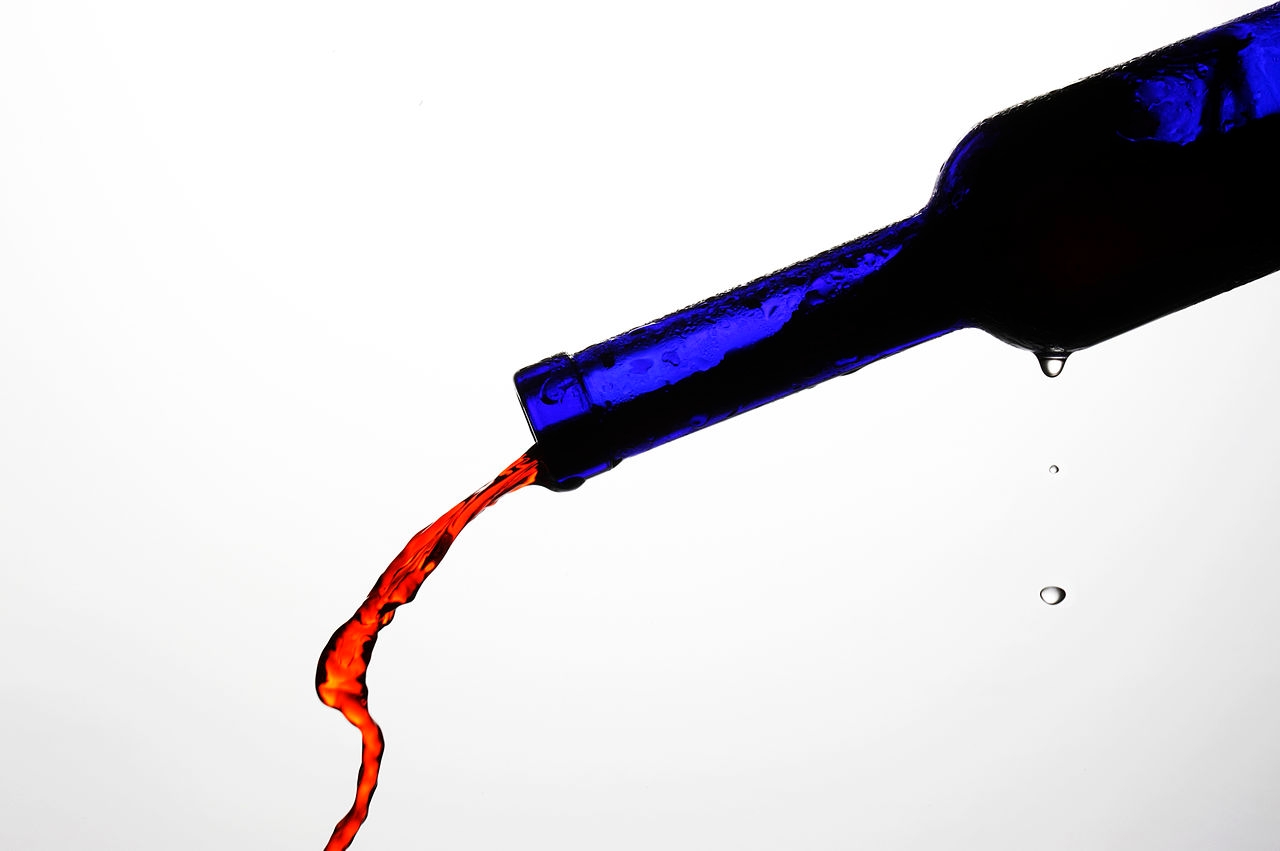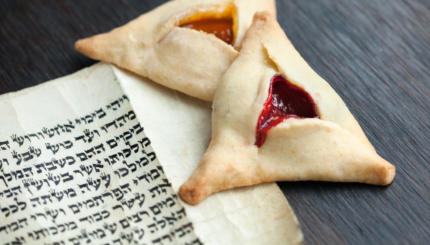When it comes to drinking on , the clearly understood what the scroll of Esther (the ) was all about. In practically every chapter of the Megillah, someone is imbibing heavily at a drinking party. And the scroll concludes with Mordecai’s instruction to the entire Jewish people to celebrate these days as “yemei mishteh v’simchah, days of drinking and rejoicing” (Esther 9:22).
An ambiguous law like that, however, would not be left unqualified by the rabbis. On Passover, precise amounts are defined so that one may fulfill the obligations of eating matzah and drinking the four cups of wine. So one might expect that the rabbis would define “days of drinking” in terms of the volume of wine or the number of hours one would be obligated to drink.
The rabbis of the Talmud paid close attention to the nature of the obligation. On Passover, the four cups of wine are for joy and for sanctification, but they also have symbolic associations with the expressions that God used for Israel’s redemption. On Purim, however, the wine (or liquor) is not symbolic. It is functional. Consequently, the nature of the obligation is not defined by volume, but rather, by the effect upon the drinker.
How Drunk Is Drunk?
“Rava said: It is one’s duty levasumei, to make oneself fragrant [with wine] on Purim until one cannot tell the difference between ‘arur Haman‘ (cursed be Haman) and ‘barukh Mordekhai’ (blessed be Mordecai)” (Babylonian Talmud, Megillah 7b).
What degree of drunkenness is meant by this? The word levasumei is sometimes translated as “get mellow;” others simply say “drink.” The word levasumei, however, is from the same root as besamim (fragrant spices, like those that are smelled during at the conclusion of the Sabbath). Minimally, one must drink so that others would smell it, although if they are also drunk, who would be able to check? Maximally, one must become, to use a technical term, “stinking drunk.”

Help us keep Jewish knowledge accessible to millions of people around the world.
Your donation to My Jewish Learning fuels endless journeys of Jewish discovery. With your help, My Jewish Learning can continue to provide nonstop opportunities for learning, connection and growth.
Most people assume that one must become so befuddled that one can no longer distinguish between the most wicked of people and the most righteous. Some, however, have noted that the two phrases, “arur Haman” and “barukh Mordekhai” have the same numerical value according to the traditional counting of the Hebrew letters called gematria (502). This point is somewhat obscure. Are we to assume that people are sober enough to calculate the of these phrases, but drunk enough to get the words confused because they have the same gematria? However puzzling, this seems to be the opinion of the 17th century halachist R. Abraham Abele ben Hayyim haLevi Gombiner.
Alcohol and Swordplay Don’t Mix
Perhaps the Talmud tells the following story in order to provide some degree of clarification of Rava’s requirement to get drunk:
Rabbah and R. Zeira got together for Purim Seudah (the feast on the afternoon of Purim). They got very drunk, and Rabbah got up and cut R. Zeira’s throat (literally, Rabbah butchered him). The next day, Rabbah prayed on R. Zeira’s behalf and brought him back to life. A year later, Rabbah asked, “Would you like to have Purim Seudah with me again this year?” R. Zeira replied, “One cannot count on a miracle every time.” (Megillah 7b)
Cute story, but what does it have to do with how much one is supposed to drink? Traditional interpreters have four basic approaches. The most eminent sources, including the Rosh, the Tur, and Yosef Karo, simply quote Rava’s statement that one “becomes fragrant” without any reference to the story of Rabbah. Presumably, R. Zeira had a hard night, but why should that spoil the party for everyone else?!
The opposite approach is attributed to the late 11th-century North African halachist Rabbenu Ephraim ibn Avi Alragan, “Based on the story of Rabbah getting up and slaughtering R. Zeira, we reject the statement of Rava, and it is wrong to act in such a way” (quoted by the Ra”n, ad. loc.).
Maimonides, however, replaces the “can’t tell the difference between Haman and Mordecai” standard with one that is more easily appraised:
How does one fulfill the obligation of the Purim Seudah? One should eat meat and prepare as nice a meal as one can afford and drink wine until one becomes drunk and falls asleep from drunkenness. (Laws of Megillah 2:15)
Falls asleep? Many contemporary halachists see Maimonides as limiting the application of Rava’s “can’t tell the difference…” rule; one only has to get drunk enough to fall asleep. This reading is strange. Rigorous double-blind controlled testing reports that one loses the ability to count up gematria significantly quicker than one passes out in a drunken stupor. Nevertheless, if Maimonides, who was, after all, a doctor, says that one hasn’t fulfilled one’s obligation until one is out cold on the floor, then maybe that should be the standard. Of course, from a public health perspective, going to sleep is preferable to picking up a sword (or car keys).
Maimonides’ reading finds substantial support in the comments of the 16th-century Talmud commentator R. Samuel Eliezer ben Judah haLevi Edels, better known as the Maharsha. The Maharsha understands the story of Rabbah and R. Zeira as an example of figurative language:
It is surprising to explain this as if Rabbah actually committed this crime, but rather, it is as if Rabbah butchered him. That is to say, Rabbah urged R. Zeira to drink too much until he got sick and almost died… The words “brought him back to life” in both the Bible and the Talmud can simply mean healing. If the Maharsha’s reading underlies Maimonides’ ruling that one should drink until one passes out, then perhaps, against the opinion of Rabbenu Ephraim ibn Avi Alragan, the story of Rabbah and R. Zeira is meant to be indicative of normative practice (the drinking, not the swordplay).
As the Italian commentator, R. Hizkiyah ben David DaSilva points out, if the story of Rabbah were meant to indicate that Rava’s rule had been rejected, then why would R. Zeira refuse to join Rabbah the following year? Clearly, R. Zeira expected that Rabbah would continue to drink heavily on Purim (Peri Hadash). Following this line of reasoning, the point of the story is that one should get drunk until one is “dead to the world.” Hopefully, one also has a friend who can nurse one back to sobriety, or at least back to consciousness.
When Not To Drink on Purim
More recent commentators have been somewhat more limited. The 18th-century codifier, R. Abraham ben Yehiel Michal Danzig wrote:
Since the entire miracle of Purim came about through wine, our sages obligated us to get drunk, or at least to drink more than what we are used to, in order to remember the great miracle. However, if one knows oneself, and is likely to neglect the performance of a [commandment], such as washing one’s hands before eating bread or making a blessing over food before and after eating or that one might forget to pray or might act in a light-headed way, it is better not to get drunk. (Quoted in Be’ur Halakhah 694, s.v. “Ad”)
Don’t get so drunk that you forget to perform any mitzvot. And count among those mitzvot the contemporary obligation to have a designated driver. Cars can be like Rabbah’s sword, and one cannot count on a miracle.



